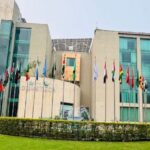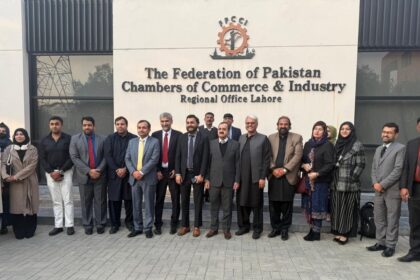Journalists and civil society representatives have strongly urged the federal government to restore an elected local government system in Islamabad, warning that persistent delays and bureaucratic hurdles have denied citizens their constitutional right to local representation. They called for immediate enforcement of the Islamabad High Court’s decision transferring municipal functions, assets, and personnel from the Capital Development Authority (CDA) to the Metropolitan Corporation Islamabad (MCI) and demanded legislative measures to ensure financial autonomy, transparency, and effective governance.
Speaking at a press conference held at the National Press Club Islamabad, representatives from the Pakistan Federal Union of Journalists (PFUJ), the Pakistan Development Alliance (PDA), and other civil society groups presented a detailed White Paper on the status of local governance in Islamabad. PFUJ President Afzal Butt, PDA Chief Executive Zia-ur-Rehman, UGOOD CEO Syed Ishtiaq Gilani, NPC President Azhar Jatoi, and RIUJ President Tariq Ali Virk highlighted the importance of properly functional local bodies, emphasizing that up to 80% of public issues could be resolved through effective implementation of the local government system.
The speakers decried the absence of an elected local government in Islamabad since February 2021, pointing out that citizens have effectively been without local democratic representation for over four years. They explained that the White Paper exposes structural, financial, and legal obstacles that continue to undermine democratic governance by allowing unelected federal institutions to assume control over critical municipal functions.
The civil society representatives further criticized the lack of financial allocations directly to the Metropolitan Corporation Islamabad. According to their findings, approximately Rs. 6 billion per year continues to be earmarked indirectly through the Interior Ministry and the CDA, bypassing MCI completely. This practice, they stressed, clearly demonstrates the deliberate marginalization and weakening of elected local governance structures, enabling control of hefty municipal budgets by non-elected bureaucratic bodies.
Although the Islamabad High Court had previously issued a landmark decision directing the dissolution of CDA’s municipal authority and the transfer of municipal assets, responsibilities, and personnel to the MCI, speakers lamented this decision was stalled due to a prolonged pending legal appeal. They urged the immediate implementation of the court order and sought necessary legislative amendments in the ICT Local Government Act 2015 to clearly define and strengthen roles, responsibilities, electoral timelines, administrative autonomy, and public oversight mechanisms.
Further emphasizing the urgency, representatives accused influential stakeholders and authorities of deliberately obstructing timely elections and local government operations to retain financial control and discretionary powers. They specifically demanded an end to parallel implementation processes, calling for a ban on launching local development projects without prior consultation and approval from MCI. Moreover, they advocated empowering the municipality to generate and manage its local revenues through property tax and other urban levies, thereby enabling genuine municipal autonomy and financial self-sufficiency.
The speakers reiterated their call for immediate action to guarantee democratic accountability and transparency while ensuring citizens of the capital have effective local representation.











